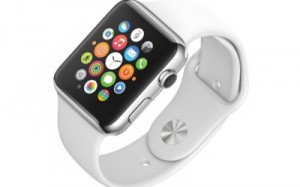For all of the great possibilities that the smartwatch brings, it has long been understood that the battery charge is its biggest downside and its biggest obstacle. Earlier this year we talked about the Pebble CEO’s claims that batteries will need to be significantly improved if smartwatches are ever to catch on in a big way.
Common sense tells us that when you try to cram so many electronic functions into such a small space, something’s gotta give, and typically that is battery size and power. The pressure is on smartwatchmakers to make the wearable devices sleeker and smaller, so they don’t have the advantage that smartphone makers do of adding a few square millimeters here and there in order to accomodate a bigger battery.
Apple is playing Johnny Tightlips when it comes to releasing any details about the Apple Watch battery. So, Quartz.com gathered some experts to discuss the issue, and the consensus was that the Apple Watch will be lucky to last a normal 16-hour waking day on a single charge.
Furthermore, the experts say that because of the high demands of its electronics, the Apple Watch will likely include software that carefully regulates its functionality in order to conserve battery life. This will likely mean that you won’t be able to actively, with your screen on, check your GPS, monitor your messages, ask Siri a question and at the same time consider Apple’s suggestion about burning calories.
 The experts agreed that Apple will likely rely on the same battery material that powers most portable devices, cobalt oxide, a chemistry commercialized in 1991. Yes, there have been advancements in cobalt oxide batteries. The newest lithium-ion cobalt oxide batteries deliver a 22% improvement over the best batteries made in recent years.
The experts agreed that Apple will likely rely on the same battery material that powers most portable devices, cobalt oxide, a chemistry commercialized in 1991. Yes, there have been advancements in cobalt oxide batteries. The newest lithium-ion cobalt oxide batteries deliver a 22% improvement over the best batteries made in recent years.
The billion-dollar question remains: Will the advances in cobalt oxide batteries be enough to render battery charge a non-issue for the Apple Watch? The clock is ticking, Apple geniuses (in case you’re not aware, that’s not a snide comment – Apple really does call their employees “geniuses”).
